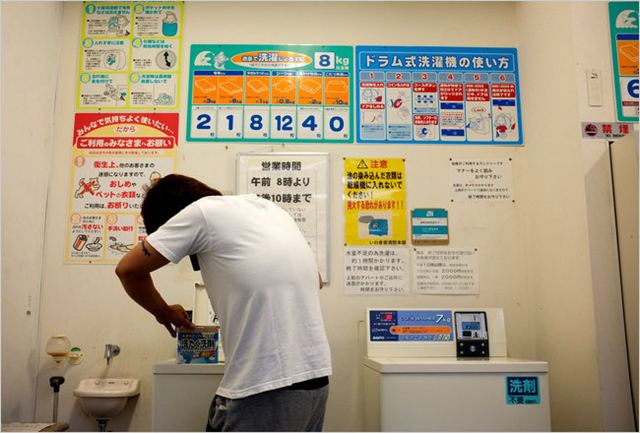Economy sends Japanese to Fukushima for jobs
By HIROKO TABUCHI
8 June 2011 IWAKI-YUMOTO, Japan — Just after 6 a.m. in this still sleepy hot spring town, bleary-eyed workers emerged from their inns, ready to board buses to return to their daily battle to contain the crisis at the stricken Fukushima Daiichi nuclear power plant. Some men are local technicians who have worked at the plant for years; others are construction workers who have traveled here from across Japan to clear radioactive debris, fix leaking pipes and fill an ever-growing need for fresh labor at the site, devastated in the March 11 earthquake and tsunami. Despite the dangers at Fukushima, laborers from across Japan are traveling to the plant in search of work during the country’s harsh economic downturn. Some workers at Iwaki-Yumoto traveled here from as far away as Kyushu, over 600 miles away, transforming the little hot spring resort into a major hub for migrant labor. The prolonged battle to stabilize the power plant has cast a harsh light on the labor practices of an industry that has long relied on informal contract labor for many of its more dangerous and taxing jobs. Of about 2,500 workers at the plant, all but 300 of them are hires of subcontractors and subsubcontractors who receive little job security, benefits or insurance for injuries or the effects of radiation. Unwinding for the night, workers described the arduous work at the site, constricted by bulky protective suits and suffocating masks. They constantly check radiation levels on their dosimeters, they said, and are dogged by fears of further accidents at the plant’s still volatile reactors. … Though workers interviewed were reluctant to talk about pay, a search on the Web reveals jobs at Fukushima Daiichi paying as little as 200,000 yen a month for positions like “remote robot operator” and “general workman,” which would come to just under $30,000 a year. By contrast, the average Tokyo Electric employee makes $94,000 a year, according to Nensyu Labo, an online personnel research company. This setup has long allowed Tokyo Electric to transfer risk to subcontractors and their poorly paid, poorly trained employees, endangering their health and undermining safety at Japan’s 55 nuclear reactors, said Takeo Kinoshita, a labor expert at the Showa Women’s University. “There is no work at a nuclear power plant that doesn’t involve radiation risks,” Mr. Kinoshita said. “Tokyo Electric hands off the risk to small subcontractors, who are less likely to be able to adequately ensure their workers’ health.” …
